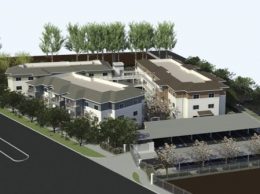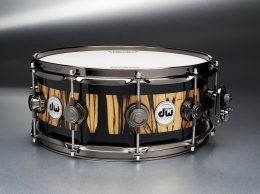Herzog Wine Cellars finds value in owning its own vineyards
Herzog Wine Cellars, based in Oxnard, has spent its nearly 35 years in California changing the perception of kosher wines from something sweet and syrupy to offerings comparable in style and quality to the varied wines crafted in the Golden State.
While 70 percent of its production goes to the kosher market, the winery has built a wider following among consumers looking for quality at competitive prices.
The family-owned winery operated for 25 years with the philosophy that it didn’t want to grow grapes. Joseph Herzog, vice president of operations, said when I visited the winery that they didn’t want to be tied down to one piece of land to source wines. Moreover, they thought that the priorities of a grower getting paid per ton didn’t always align with a wine producer that might want lower yields for quality.
Herzog’s outlook changed when the winery found itself limited in the amount of grapes it could buy. A pivotal event came in 2009 when its longtime supplier of chenin blanc and chardonnay grapes in the Clarksburg region was having financial problems and called to say he could sell only 25 percent of the chenin blanc tonnage contracted to the winery. Herzog hurriedly drove north to secure more grapes from the vineyard. The Herzog family purchased the 230-acre property in 2010 and it has been a steady source for Baron Herzog wines.
The deal worked out so well that the Herzog family has since purchased two vineyards in Lake County, one in the Napa Valley and they’re leasing vineyard property in Sonoma County.
Herzog said that since all their wines are kosher, they can’t buy bulk wines to fill gaps in their grape sources. The vineyard deals have secured long-term grape supplies and the winery has continued buying contract fruit as well. For this vintage during an over-supply market, it looked at opportunity grape purchases to bring value to the consumer, Herzog said.
The winery is prepping land at a 65-acre plot in Kelseyville, Lake County, that it acquired in 2017 to be a source for high-end cabernet sauvignon. The site, named Bottle Rock Vineyard, is at elevations of 1,300 to 2,300 feet with red volcanic soil peppered with black obsidian rock.
Winemaker Joe Hurliman said when the deal was signed that he’d been intrigued by Lake County’s potential for years.
An 18-acre vineyard acquired in the same AVA is a source for an aromatic sauvignon blanc musque wine under Herzog’s Lineage premium label.
Herzog said he never thought the winery would buy a Napa Valley property, but it happened last year when it stumbled on a 40-acre, 40-year-old plot that is now named Herzog Ridge Vineyard. It’s a low-yield, high-quality site, he said. The first Herzog wines from there will be released in late 2020 or early 2021. Replanting of parts of the vineyard will begin this year, he said.
The leased Sonoma County property is part of Warnecke Sonoma Vineyards in Healdsburg. Herzog Cellars planted a vineyard there in 2014 and another one is under development. A Special Reserve Alexander Valley cabernet is from the property.
Herzog Wine Cellars is one of the largest volume producers in the Tri-Counties at 200,000 cases. It’s a division of the Herzog family-owned Royal Wine Corp., a New Jersey-based manufacturer and distributor of wines worldwide with more than 60 brands.
Joseph Herzog is an eighth-generation member of a family that made wines served at the Austro-Hungarian royal court in the 19th century. The family’s winemaking patriarch, Philip Herzog, was made a baron by Emperor Franz Josef. The title is celebrated on today’s Baron Herzog wine labels.
Philip’s grandson, Eugene, hid his family from the Nazis in Slovakia and the family later fled the Czech Communist regime, moving to New York in 1948. It was there that Eugene began making sweet kosher wine from concord grapes, the principal variety available in the state.
“But coming from Europe, we weren’t proud of that,” Joseph Herzog said. “It’s not what we wanted to do.”
When they expanded their operations to California in 1985, they gained ready access to grapes widely used in the wine industry.
Kosher wines are made in the same manner as all wines, Herzog said. The only differences are that winemaking must be performed by Sabbath-observing Jews, only grape natural yeasts are used, and fining agents for clarifying wines cannot be animal-based.
“So there’s really nothing by being kosher that you have to pay more in terms of dollars or you’re getting less in quality,” Herzog said.
After leasing space at wineries for 20 years, Herzog built its Oxnard winery in 2005. The facility, equipped for volume and small-lot production, houses their tasting room and the elegant Tierra Sur restaurant. Herzog said the concept was to make available in kosher the same wine and food quality that can be found anywhere.
I asked Herzog if there are more vineyard deals in the works. “I’m satisfied at this point,” he said, “I can’t handle more development.”
• Contact Tom Bronzini at [email protected].











